Studies at PANE
Centre of Prehistoric Archaeology of the Near East offers studies based on a credit system. The study is dived into two subsequent levels - Bachelor studies (Bc.) and Master studies (Mgr.).
On of the greatest benefits studies at PANE offers is the wide variety of courses held by foreign experts from around the world. We expect the students to be proactive, to actively participate in seminars, and to be able to communicate in English.
Foreign lecturers teaching at PANE
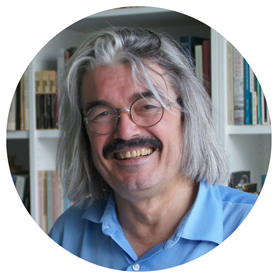
prof. Dr. Reinhard Bernbeck
Courses: Theories in Archaeology
Professor at Freie Universität Berlin
Prof. Bernbeck graduated in Art History and Archaeology at the Université de Paris I/Sorbonne. He continued his studies in Archaeology, Assyriology and Ethnology at Freie Universität Berlin and Michigan University, Ann Arbor. Prof. Bernbeck has his PhD and habilitation from Freie Universität Berlin. He also taught at Bryn Mawr College and Binghamton University. He has written on a wide range of topics, from Neolithic communities to the structure of ancient empires to an archaeology of modernity. Archaeological theory is another one of his main interests.

Federico Buccellati, Ph.D.
Courses: Introduction to the history of architecture of the Near East
Research fellow, Freie Universität, Berlin | Assistant Director, International Institute for Mesopotamian Area Studies (IIMAS)
Federico Buccellati studied at St. John's College (Annapolis, MA, USA) where he received a B.A. in Philosophy, in Tübingen (Germany) he received a Magister in Near Eastern Archaeology and in Frankfurt am Main (Germany) where he wrote his PhD within the Research Training Group “Value and Equivalence”. His thesis, entitled “Three-dimensional Volumetric Analysis in an Archaeological Context: The Palace of Tupkish at Urkesh and its Representation”, focused on the research potential in 3D models, merging volumetric data with ethnographic parallels and textual evidence to understand and measure the construction process in a 3rd Millennium BC Mesopotamian palace. This interest in energetics continued with a NEH/Mellon Digital Humanities Fellowship with the Alexandria Archive Institute and as a Guest Researcher within the TOPOI B2 – XXL Group located at the Freie Universitaet Berlin. His project, “Calculating the Costs of Ancient Buildings: A Modern Tool” examines cost-calculation-algorithms which can be applied to the volumes of ancient architecture to explore the temporal, material or energetic ‘cost’ of the steps of that process. Other research interests lie in investigating changes in material culture during the transition between the Mittani and Middle Assyrian periods and on Perception and Authorship in ancient Near Eastern palaces.
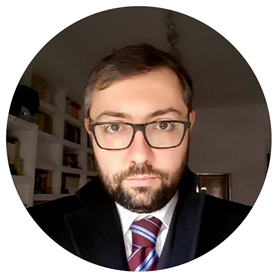
Dr. Roberto Dan
Courses: Set in Stone: Art and Architecture in Iron Age Northern Mesopotamia
ISMEO – International Association of Mediterranean and Oriental Studies
Dr. Dan is an archaeologist specialised in the architecture, history and landscape archaeology of the Near East, focused on the 1st millennium BC (Urartu, Achamenid Empire). He obtained his PhD from the “Sapienza” University of Rome, with a thesis on the archaeological landscape of Urartu. He has conducted fieldwork in Armenia, Georgia, Turkey and Iran. He is director of the ISMEO – Archaeological Mission in Southern Caucasus (AMSC), a project co-financed by the Ministry of Foreign Affairs and International Cooperation of the Italian Republic, which involves archaeological activities in Armenia (Kotayk and Vayots Dzor Regions) and Georgia (Samtskhe-Javakheti Region), with excavations in the Urartian sites of Solak 1 and Yelpin 1.
Public lectures in Brno: May 16th, 2016 "Recent Archaeological Investigations in Armenia"
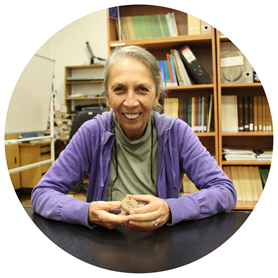
Füsun Ertuğ, Ph.D.
Courses: Ethnoarchaeological studies with relevance to the archaeology of Mesopotamia
Independent researcher
Dr. Ertuğ worked at many archaeological excavations in Anatolia as an archaeologist, photographer and since the 70s she studies ethnography in Anatolian villages. During the last 20 years she is especially focused on ethnobotany (relations between humans and plants). Apart from teaching archaeology and ethnology at Yeditepe University, she conducted weekend workshops at botanical garden in Istanbul and conducted several long-term researches in Anatolia. She was the coordinator of Ethnobotanical Inventory Project for Turkish Academy of Science (TUBA). Currently, dr. Ertuğ is retired and continues her fieldworks in rural areas.

Dipl.-Ing. DDr. Hubert Feiglstorfer
Courses: Introduction to the Architecture and Building History
Institute for Social Anthropology, Austrian Academy of Sciences
Dr. Feiglstorfer works as an architect specialized on survey, planning, and execution of construction work. He studied architecture at McGill University and later at Vienna University of Technology. He holds two PhDs, one in Architectural History and Building Research (Vienna University of Technology) and the other in Applied Geology (University of Natural Resources and Life Sciences, Vienna). Dr. Feiglstorfer currently lectures at both universities and participates in the innovation fund project of the ÖAW (Austrian Academy of Sciences) on Material Culture in Tibet.

Mag. Dr. Karina Grömer
Courses: Experimental Archaeology (Textile Techniques)
staff scientist and vice-head of the Department of Prehistory, Natural History Museum Vienna
Dr. Grömer studied Prehistoric Archaeology, Ethnology and Anthropology at the University of Vienna in Austria. She is specialized in textile analysis, research on textile tools and reconstruction of prehistoric costume. Since 2008 she has been working at the Department of Prehistory of the Natural History Museum Vienna for different international research projects e.g. “DressID - Clothing and Identity in Roman Empire”, “CinBA – Creativity in the Bronze Age” and “Chehrabad Saltmummy & Saltmine Exploration Project”. Her current research focuses on the analysis of textiles from graves, settlements and saltmines, covering a timespan from 2500 BC till 1000 AD and a geographical area from Central Europe to Iran. She is also teaching at the Universities Vienna (Austria) and Southampton (Great Britain).
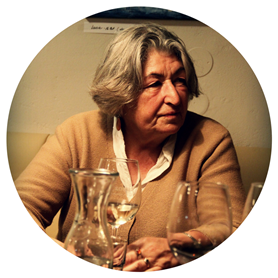
prof. Sevil Gülçür
Courses: The Neolithic and Chalcolithic of Turkey
Professor Emeritus at Istanbul University
Prof. Gülçür graduated in Archaeology at Istanbul University and finished her PhD in Tübingen University. After her studies she worked as an assistant and later as a professor at Istanbul University, Department of Prehistory. She is a member of Turkish Institute for Ancient Heritage (Türk Eskiçağ Bilimleri Enstitüsü). Prof. Gülçür also collaborates with German Archaeological Institute (DAI) and in during 1998 – 2004 she worked as a curator of the Black Sea region within the Turkish ministry of tourism and culture.

prof. Emeritus Frank Hole
Courses: Ethnoarchaeology of Iran
J. McCurdy Professor of Anthropology, Emeritus, Senior Research Scientist, Yale University
Prof. Hole conducted archaeological and ethnographic research in Iran and Syria for some 50 years. His excavations have ranged from Middle Paleolithic through EpiPaleolithic, Neolithic, Chalcolithic and Early Bronze Age. Most prominent among these have been excavations at Yafteh Cave, Ali Kosh, Chagha Sefid and Tula’i, in Iran, and surveys of Deh Luran and Susiana. His migration with tribal nomads was a pioneering ethnoarchaeological study. In Syria, he surveyed the middle Khabur Basin and excavated Tell Ziyadeh and Umm Qseir. His later research in Syria, using satellite imagery focused on landscape, modern land use, and sustainability. Prof. Hole is a member of the U.S. National Academy of Sciences and he received the Lifetime Achievement Award of the Society for American Archaeology, and the Farabi International Award, in Iran.
Public lectures and past courses:
Neolithic of the Near East | Excavations in Deh Luran, Sarab and Tula’i | Epipaleolithic hunter-gatherers in the Near East | Survey and Sampling in the Khabur Basin | Excavations at Ziyadeh and Umm Qseir
Ethnoarchaeology of Nomadic Pastoralism (a movie) | Archaeological Autobiography (Frank Hole) | Monumental Failure: the Collapse of Susa
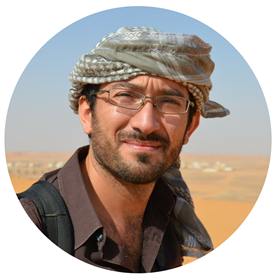
Romolo Loreto, PhD.
Courses: Archaeology of Arabian Peninsula
Assistant professor at University of Naples L'Orientale
Dr. Loreto is an assistant professor at the University of Naples L'Orientale, where since 2010 he is teaching Archaeology and Art History of the Ancient Near East. His studies are fully devoted to the Arabian Peninsula, with a particular focus on the 1st millennium BCE, stretching from the monumental architecture of pre-Islamic Yemen, to the Early Iron Age landscape archaeology and oasis economy in the northern Sultanate of Oman, to his main field of research: the excavation of the ancient North Arabian city of Adummatu (today Dumat al-Jandal) and the study of al-Jawf region, where he is directing the Italian archaeological mission in the Kingdom of Saudi Arabia.
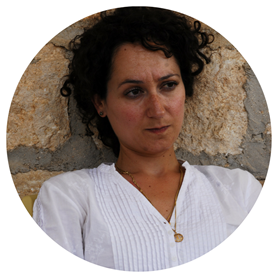
Maria Gabriella Micale, Ph.D.
Courses: Specifics of Archaeological research in the Near East
Research fellow at TOPOI-Freie Universität Berlin
Dr. Micale is an archaeologist and art historian of the ancient Near East currently based at the Freie Universität in Berlin. Beside her extensive field activities in Syria as member of the Italian Archaeological Expedition at Ebla, she is an expert on Assyrian images of architecture (PhD. 2009, Rome; Post-Doc 2014-2017, Berlin ) and on the history of archaeological research in the Near East. In 2008 and 2010-11 she worked on reorganizing the museum collections in Damascus and Idleb within the cooperation of the Ministry of Foreign Affairs and International Cooperation. She developed a particular focus on drawings reconstructing ancient buildings and the hidden reciprocal influence between these drawings and modern architecture. She is currently working on the reassessment of architecture and unpublished materials from the Persian-Achaemenid levels of Tell Mardikh/Ebla.
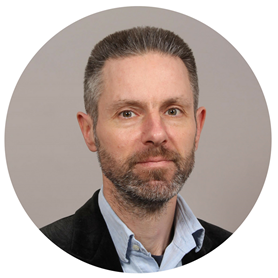
Dr. Olivier Nieuwenhuyse
Courses: Neolithic Pottery of the Near East
Institut für Vorderasiatische Archäologie, Freie Universität Berlin (Alexander von Humboldt Fellow)
Dr. Nieuwenhuyse studied Social Psychology and Cultural Anthropology at the University of Amsterdam before switching to European Prehistory and Near Eastern Archaeology. After finishing his PhD at Leiden University, he held various academic positions in the Netherlands and elsewhere, including a research fellowship at the Deutsches Archäologisches Institute Berlin (Orient Abteilung). Currently he holds a Humboldt Research Grant for the project Containers of Change. He has conducted fieldwork in Syria, Turkey, Lebanon and Iraq and published extensively on the later prehistoric societies of the ancient Near East. His favourite research themes include the Late Neolithic of Upper Mesopotamia, the archaeology of climate change, and the dialectics between human societies and their material environments. Nieuwenhuyse also ran a rescue project on the threatened collections from the archaeological museum of Raqqa (Syria).
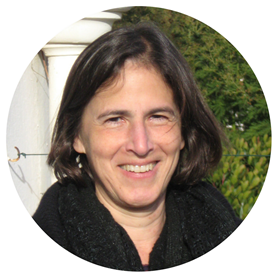
prof. Susan Pollock, PhD.
Courses: From the Prehistoric Village to early States in the Ancient Near East | Chalcolithic of the Near East – seminar
Professor at Freie Universität Berlin
Prof. Pollock obtained her doctoral degree in anthropology specialised in the Near East at the University of Michigan. She worked as a professor at the Binghamton University and currently she is a professor at the Institute for Ancient Near Eastern Archaeology of the Free University of Berlin. She is interested in the development of state and urban societies in Western Asia and their origin in Neolithic villages, which are found in this region. She focuses on the study of household management and state economy. Prof. Pollock is also concerned with feminism and gender studies in archaeology and cultural anthropology. She conducted field research in Iran, Iraq, Turkey, Turkmenistan, and in sites dating to the 20th century in Berlin.
Public lectures in Brno: April 11th, 2011 “Death of a Household: The Royal Cemetery of Ur”
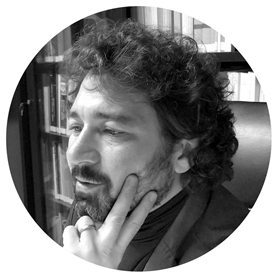
Dr. Stefano Valentini
Courses: Archeology and Religion
Co-Director of CAMNES (Centre for Ancient Mediterranean and Near Eastern Studies)
Dr. Valentini studied Ancient History and Archaeology of the Near East in Florence. He worked as a coordinator of many projects, e.g. the subdivision ARCANE studying the burial practice in Jazirah among others. He excavated in Syria, Iraq and Turkey. He held lectures also for the Department of Antiquities at the Florence University. Dr. Valentini is interested in burial practices and cult areas from the archaeological point of view.

Dr. Frans A. M. Wiggermann
Courses: Sumerian Language | Introduction to the Old Babylonian Language | Mythology and Iconography of the Ancient Near East
Currenty retired
Dr. Wiggermann studied semitic languages with focus on Assyriology at the Free University of Amsterdam, where he later worked. He cooperated also with many significant universities: at Chicago, Berlin, Göttingen, Leiden, and the Metropolitan Museum in New York. Dr. Wiggermann is also a member of the NIAS group (“Magic and Religion in the Ancient Near East”). Among other things he also participated since 1993 in archaeological excavations at the site of Tell Sabi Abyad in Syria.
Public lectures in Brno:
April 19th, 2011: “Spirits and Wild Men from Ancient Mesopotamia“
March 28th, 2012: „Mesopotamian Art and Religion: The Horizon“